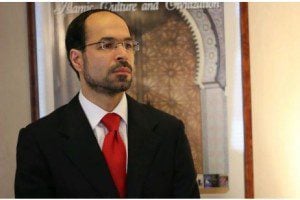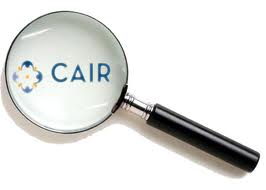A month ago Altmuslim published part one of a two-part series on the attacks and controversy surrounding the Council on American-Islamic Relations, better known as CAIR. The article received much feedback and interest, primarily from CAIR employees and volunteers and other Muslim activists. It seemed to strike many chords, both good and bad, and bring to the surface heretofore unspoken tensions within and outside CAIR. While the objective of the first article was to explain the history behind the FBI’s break with CAIR, this article will tackle some of the criticisms of the organization within the Muslim community while also addressing some issues raised from the previous article.
“They’re irrelevant.”
“They’re only good for issuing press releases and calling press conferences.”
“They have no strategy.”
“They’re reactive.”
“They create issues to raise money.”
“They’ve benefitted greatly by Islamophobia.”
“They create more Islamophobia.”
“Their leadership is stagnant.”
These are a number of the criticisms about CAIR coming from Muslim leaders and activists outside the organization. I’ve heard such assessments uttered behind closed doors, sometimes in a dismissive manner and sometimes with genuine concern. On one hand, a local Muslim leader told me that he works hard to dismantle and obstruct the local CAIR chapter because they are ineffective and counter-productive. On the other hand, a young activist told me that more CAIR chapters are needed across the country because of the rise in anti-Muslim bigotry.
Most Muslim activists and advocates tend to hold strong opinions about CAIR, and rightly so — it is arguably the largest, most active and strongest Muslim organization in the United States. Many of us grew up with CAIR as the only Muslim advocacy group out there; we feel an attachment, feel invested, and have a sense of ownership.
The critiques of the group are not unknown to its leadership. The executive director of one large chapter admitted that other Muslim organizations and leaders held such views about CAIR, but added, “ … such talk comes from D.C.” – pointing out that across the country, chapters had strong support from the public and good relations with local organizations and communities. Another staff member mentioned how CAIR was slowly marginalized by other Muslim organizations, being left off of phone conferences and not being invited to certain forums.
A number of CAIR chapter folks made it clear that there is a difference between CAIR National and the chapters, to presumably distance themselves from the shortcomings of National. CAIR chapters operate much like franchises of CAIR National, legally independent, but bound by the principle entity’s philosophy, mission, and certain rules.
It was also made clear to me that although opinion of the organization may be low amongst other Muslim leadership and despite the concerted effort to demonize the group by Islamophobes, membership and donations in many chapters is growing rapidly. This is a phenomenon that the CAIR staff member I spoke with was unable to explain (but I will further down in this piece).
Lack of Strategic Planning and Stagnate Leadership
At the heart of most of the criticisms of CAIR is that it does not work proactively and strategically. A particularly harsh assessment of CAIR is that it is hurting Muslim activism and advocacy rather than helping it through poor communications that maintain an adversarial nature and create more opposition to Muslims. One community advocate said, “CAIR is going the way of the NAACP,” explaining that the organization is gradually losing influence because of its constrained and myopic methods focusing on highlighting the wrongs done to Muslims instead of developing solutions, as well as not thinking broadly or long-term.
Admittedly most of the work of CAIR chapters is hate crime and discrimination intake, advocacy on behalf of American Muslims through lawsuits and media campaigns, and outreach to local Muslim communities to raise civil liberties awareness. As compared to the American Civil Liberties Union (and modeled rather like it in structure as well as in its objective), which is the largest civil liberties advocacy organization in the U.S., CAIR does indeed fall short. For example, the ACLU produces well-researched reports and policy papers annually while the last reports issued by CAIR National were produced in 2006.
This may, however, be an unfair criticism. CAIR is, after all, an advocacy group. It’s immediate and most pressing objective is to defend the civil rights of Muslims, which is inherently reactive work. As one CAIR executive director said, “Who else is going to stand up for the woman who got turned down for a job because of her hijab [headscarf] or a kid who is being bullied at school because he’s Muslim? Will ISNA, MPAC, ICNA [Islamic Society of North America, Muslim Public Affairs Council, Islamic Circle of North America]? Of course not. We’re the only ones on the ground to do this work.”
Even so, what separates a strong, healthy organization from a stagnant one is certainly strategic planning. A pointed criticism tied to strategy was that CAIR National, by being under the same leadership for so many years, was failing to a legacy plan. Indeed, Nihad Awad has been the executive director of CAIR since 1994 (as well as being on its board). Ibrahim Hooper has been its Communications Director also since 1994, and Corey Saylor has been the National Legislative Director since 2004.
“It’s the All-Founding-Uncles-Board Syndrome you see at most our mosques — they just won’t let anyone else in,” said one critic who wished to remain anonymous. And, it’s hard, just looking at the facts on paper, not to come to the same conclusion.
However, when asked to comment on this criticism, CAIR National responded with the following statement:
CAIR has established a strong institutional memory and culture though the knowledge and experience of long-serving leaders, while benefiting from innovative ideas and approaches brought by new leaders and staff at both our Washington, D.C., headquarters and at chapters nationwide. The majority of our national board members have served on that executive body for less than six years. The current board chair, a U.S. Army veteran and small business owner, joined the board less than two years ago. Many effective organizations and corporations — Apple and Microsoft come to mind — have retained some individuals in key positions over a number of years.”
While there may be merit in retaining key figures, it begs the question, for how long? Institutional memory by definition transcends individuals and is tied to the institution itself, a concept that truly dynamic organizations understand and implement well.
As mentioned earlier, numerous chapter directors made sure to point out the difference between national and state chapters, especially on the issue of the break with the FBI. That CAIR National and the state chapters are legally separate entities, and that it was national that was listed as an unindicted co-conspirator, is meaningful to chapter directors and staff.
 For practical purposes, it still results in regional FBI directors reciting this policy and refusing to work with state CAIR chapters in an official capacity in many parts of the country. One insider directly blamed CAIR National’s leadership for the FBI fiasco, saying that the government had requested certain documents that they refused to turn over, leading to the current stand-off. A number of sources even went as far as to say that the FBI would change its policy if Executive Director Nihad Awad would just step down — but his refusal to do so, even for the sake of the organization, have been harmful and disappointing.
For practical purposes, it still results in regional FBI directors reciting this policy and refusing to work with state CAIR chapters in an official capacity in many parts of the country. One insider directly blamed CAIR National’s leadership for the FBI fiasco, saying that the government had requested certain documents that they refused to turn over, leading to the current stand-off. A number of sources even went as far as to say that the FBI would change its policy if Executive Director Nihad Awad would just step down — but his refusal to do so, even for the sake of the organization, have been harmful and disappointing.
CAIR National had the following to say in response to this criticism:
“CAIR feels it would be unwise for any American minority to allow any government agency to hand-pick their leadership. Efforts by the government to drive out certain prominent leaders during the civil rights movement of the 1960s were rightfully rejected. Allowing it to happen today would be walking back the hard-won gains of minorities targeted before us and a betrayal of the principles on which our nation was founded.”
In light of the status quo, the FBI apparently has little incentive to work directly with CAIR — “they’ve made enough local partnerships that they don’t need CAIR” said the insider. And, smear campaigns by Islamophobes certainly don’t make the legal distinction between national and local chapters, lumping them together under the same unindicted co-conspirator/Muslim Brotherhood conspiracy umbrella. For better or worse, national and chapters are affected by each other’s reputations — legal lines mean little to outsiders.
Why Does CAIR Still Have Public Support?
Every generation produces brilliant minds with diverse and vital talents that understand their particular generational context — it’s a shame that many of our organizations, including mosques, fail to recruit and tap into younger professionals for leadership positions. This explains why, as a 2011 Gallup Poll reports, that almost half of American Muslims don’t feel represented by any of our major organizations. CAIR did have the distinction of beating out other groups in the percentage of American Muslims who felt represented by the group, at a whopping 11.5 percent (averaged for males and females). ISNA tied
for second, at a 3.5 percent average.
Despite such discouraging statistics, CAIR representatives remain confident about the public’s support. Citing sold-out banquets and record-breaking fundraising, chapter leaders expressed little concern for criticism and negative rhetoric. So how is it that, in the middle of controversy and negative attention, major CAIR chapters keep managing to grow their supporter base?
A completely unscientific and informal study I conducted explained the phenomenon.
Polling a group of my young, professional Muslim friends who had no ties to activism or advocacy, I found that almost none had ever heard of the FBI issue, the Islamophobe campaigns, or any other related CAIR controversy. In other words, their ignorance (and that of most other American Muslims) is CAIR’s bliss. And, coupled with rising anti-Muslim sentiment, American Muslims are finding CAIR to be the best-equipped organization to defend the community.
Taking CAIR to the Next Level
So, what is the way forward with CAIR? From my perspective some criticisms are fair, but many others are not. There is no Muslim organization (or maybe any organization at all) that is free from weakness, especially on the issue of static leadership. Any organization that maintains the same leadership for decades is wildly waving the red flag that they’ve relinquished growth in favor of holding on to positions of power to the detriment of that group’s mission and constituents. Few Muslim institutions, perhaps including CAIR National, understand or care enough about the organization’s health to make necessary changes at the helm.
I hope, as someone who has always supported the work of CAIR, that their leadership will recognize how new, dynamic leadership has transformed and uplifted their strongest state chapters. CAIR Philadelphia, Chicago, San Francisco, Sacramento, and Michigan are some of the brightest chapters in the country led by highly adept individuals. I’ve seen before my own eyes CAIR Connecticut transformed from an ineffective organization to a vital part of the Connecticut Muslim leadership community, thanks to the leadership of new Executive Director Mongi Dhaouadi.
Even recruiting from within its own chapter ranks could fill CAIR National with fresh, smart, talented blood that may transform it as well and resolve many of the criticisms. And weaker chapters, which are mismanaged or unproductive because of unqualified or uncommitted leadership/staff/volunteers, should be identified by national and trained or mentored by stronger chapters.
On the FBI issue, I continue to be strongly opposed to the bureau’s blacklisting of CAIR. As I said in my previous article, it is both inconsistent and poor policy, especially at a time when the administration and other government agencies are stressing the importance of community alliances in fighting violent extremism. In an answer to the question of the insider who asked “what incentive does the FBI have to work with CAIR anymore?” I’d say that building the trust and goodwill of American Muslims is a good start. Or perhaps falling into line, as other agencies are, with the administration’s recommendation to partner with Muslims rather than be adversarial.
On a local level, some communities have found the best way to deal with the FBI is to declare an all-or-nothing policy with regards to CAIR. We did something similar in Connecticut with the Connecticut Muslim Leadership Council, making it clear that if the FBI wanted to interact with Muslim leadership, CAIR would have to be at the table or none of us would be. It worked. Unfortunately, we are generally poor at showing solidarity in our community and are weaker for it.
Personally, I’ve been disappointed by the response of activists and Muslim groups who have distanced themselves from CAIR regardless of the nature of the criticism. I don’t believe in throwing the baby out with the bathwater. Despite faults, CAIR remains our strongest and largest Muslim organization, with the greatest reach, and appeal, to American Muslims.
I hope that our community continues to support CAIR in every way possible. It’s clear that CAIR is here to stay, having weathered many storms and proving its resilience. And we need CAIR — there is no doubt about that. No group can replace the valuable work they do on a local level. Sure, like other groups, it may be a bit broken, but it’s nothing that can’t be fixed.
Marginalizing CAIR is the wrong strategy, because in the long run it hurts all of our organizations and the Muslim community at large. As the saying goes, a fist is stronger than five individual fingers. And, as the Prophet Muhammad (saw) said, “A believer’s relationship to other believers is like that of the different parts of a building, each of which supports the other.”
Rabia Chaudry is an attorney, president of the Safe Nation Collaborative, an Associate Fellow of the Truman National Security Project, and a columnist for the Muslim Channel at Pathos.













